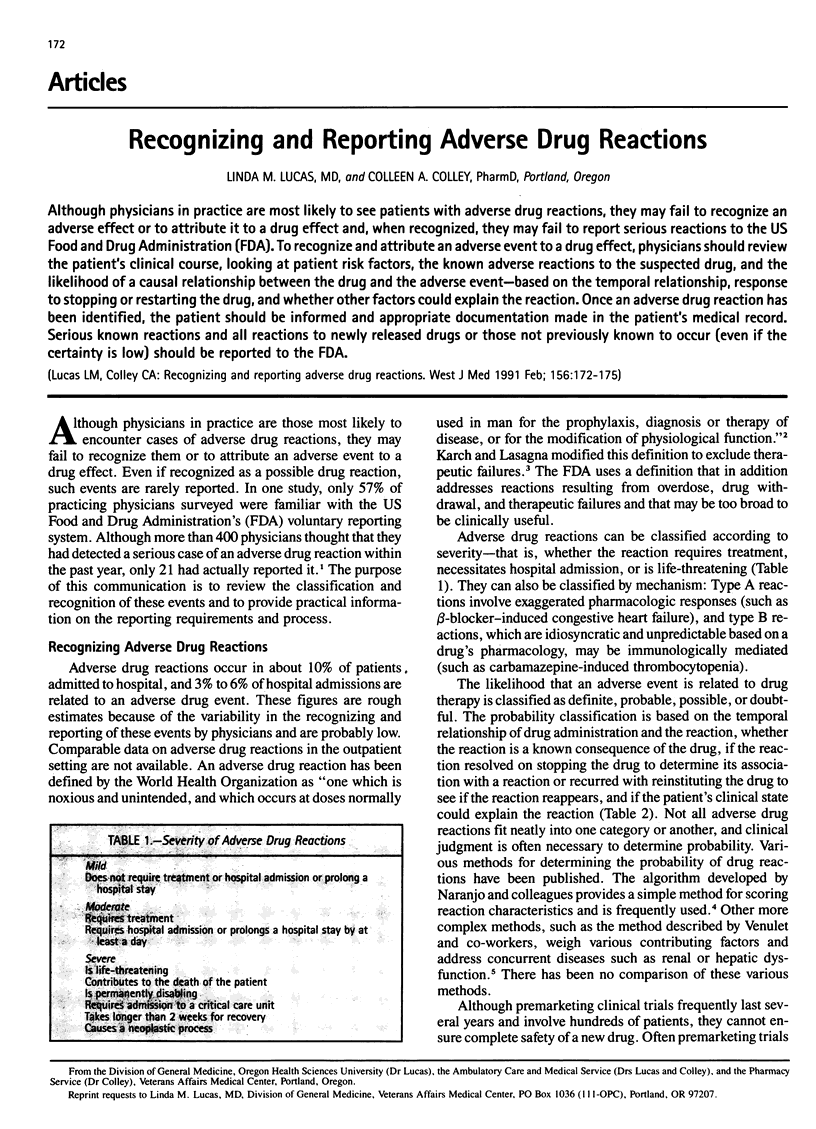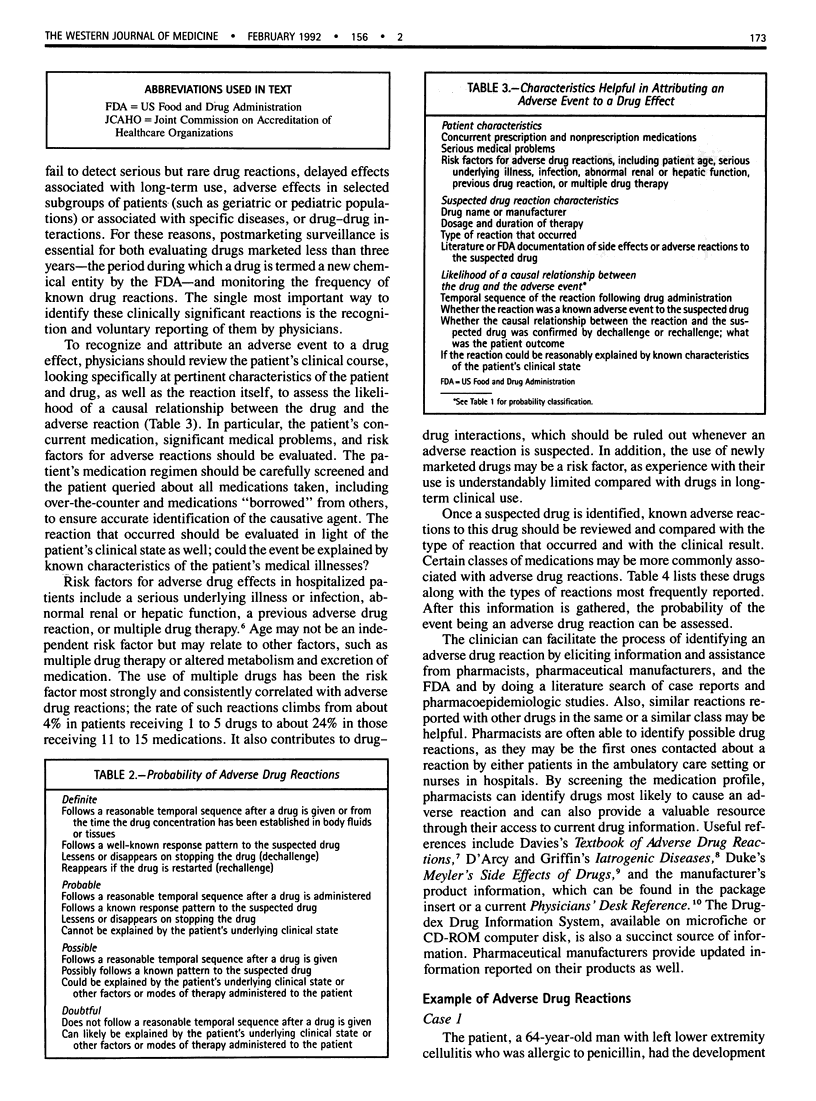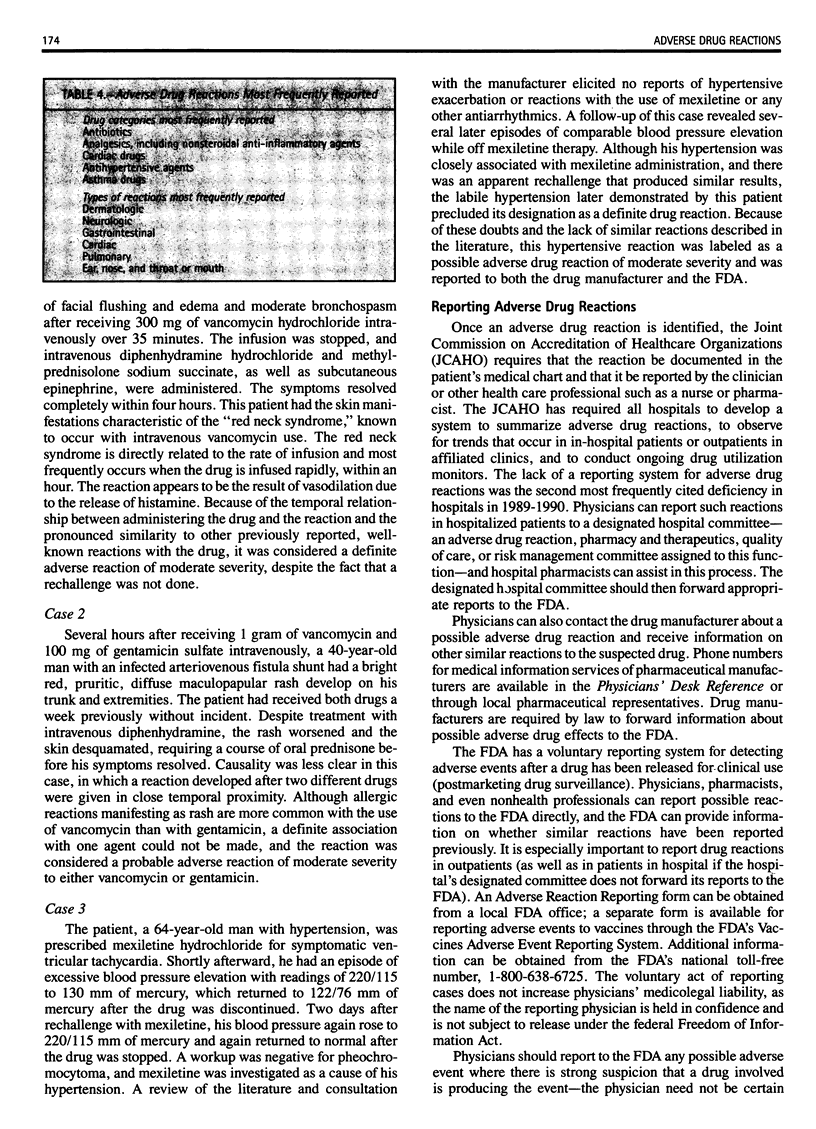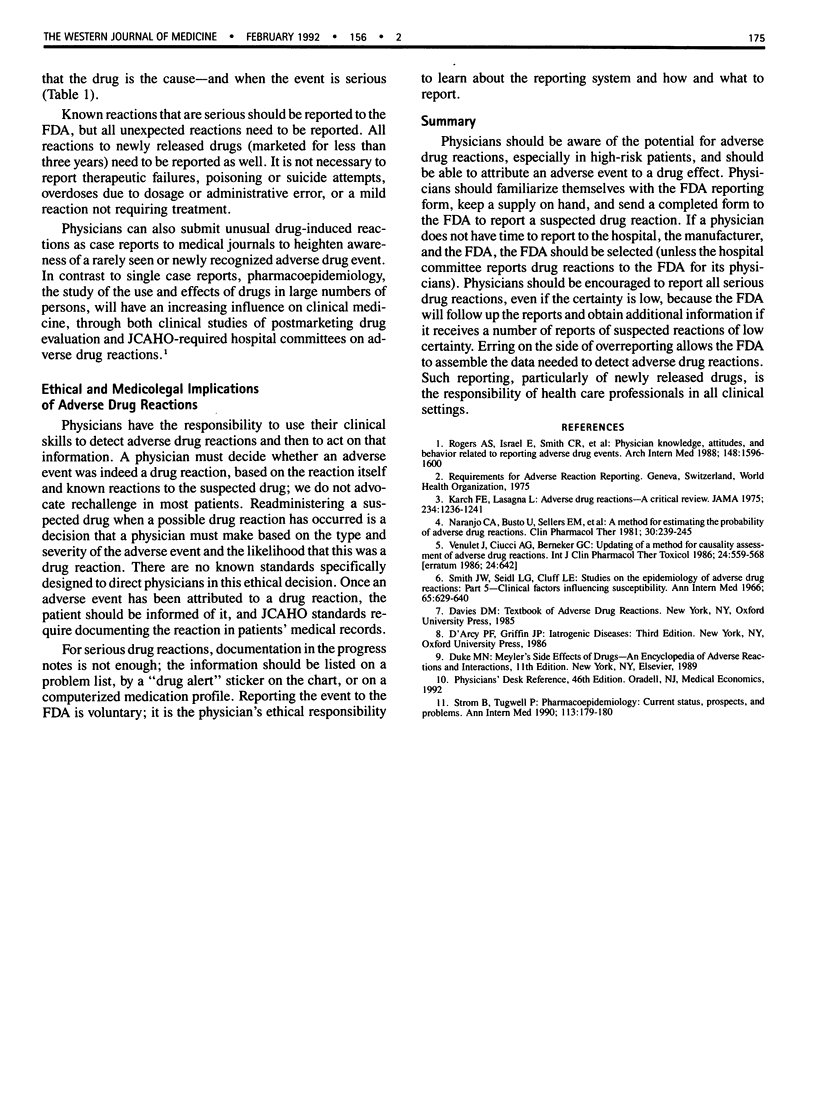Abstract
Although physicians in practice are most likely to see patients with adverse drug reactions, they may fail to recognize an adverse effect or to attribute it to a drug effect and, when recognized, they may fail to report serious reactions to the US Food and Drug Administration (FDA). To recognize and attribute an adverse event to a drug effect, physicians should review the patient's clinical course, looking at patient risk factors, the known adverse reactions to the suspected drug, and the likelihood of a causal relationship between the drug and the adverse event-based on the temporal relationship, response to stopping or restarting the drug, and whether other factors could explain the reaction. Once an adverse drug reaction has been identified, the patient should be informed and appropriate documentation made in the patient's medical record. Serious known reactions and all reactions to newly released drugs or those not previously known to occur (even if the certainty is low) should be reported to the FDA.
Full text
PDF



Selected References
These references are in PubMed. This may not be the complete list of references from this article.
- Karch F. E., Lasagna L. Adverse drug reactions. A critical review. JAMA. 1975 Dec 22;234(12):1236–1241. [PubMed] [Google Scholar]
- Naranjo C. A., Busto U., Sellers E. M., Sandor P., Ruiz I., Roberts E. A., Janecek E., Domecq C., Greenblatt D. J. A method for estimating the probability of adverse drug reactions. Clin Pharmacol Ther. 1981 Aug;30(2):239–245. doi: 10.1038/clpt.1981.154. [DOI] [PubMed] [Google Scholar]
- Rogers A. S., Israel E., Smith C. R., Levine D., McBean A. M., Valente C., Faich G. Physician knowledge, attitudes, and behavior related to reporting adverse drug events. Arch Intern Med. 1988 Jul;148(7):1596–1600. [PubMed] [Google Scholar]
- Smith J. W., Seidl L. G., Cluff L. E. Studies on the epidemiology of adverse drug reactions. V. Clinical factors influencing susceptibility. Ann Intern Med. 1966 Oct;65(4):629–640. doi: 10.7326/0003-4819-65-4-629. [DOI] [PubMed] [Google Scholar]
- Strom B. L., Tugwell P. Pharmacoepidemiology: current status, prospects, and problems. Ann Intern Med. 1990 Aug 1;113(3):179–181. doi: 10.7326/0003-4819-113-3-179. [DOI] [PubMed] [Google Scholar]
- Venulet J., Ciucci A. G., Berneker G. C. Updating of a method for causality assessment of adverse drug reactions. Int J Clin Pharmacol Ther Toxicol. 1986 Oct;24(10):559–568. [PubMed] [Google Scholar]


